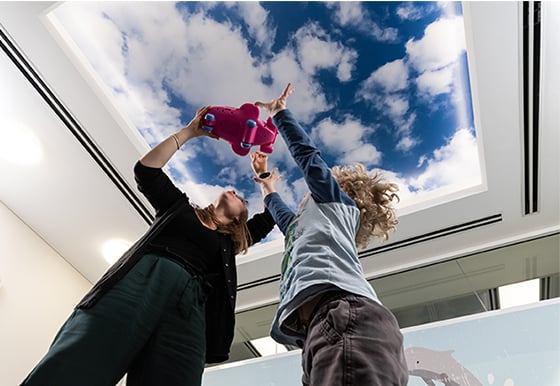Search
Showing results for "1"
Research
The impact of influenza infection on young children, their family and the health care systemInfluenza infection in young children has a significant impact on medication use, absenteeism and the use of health care service
Research
Impact of biobanks on research outcomes in rare diseases: a systematic reviewThis review made the important observation that registries with biobanks had the function of both stand-alone registries and stand-alone rare disease biobanks

News & Events
How much is the right amount of therapy?In this blog, CliniKids Director Professor Andrew Whitehouse and Research Development Manager Sarah Pillar explore one of the most common questions when it comes to support for autistic children - how much is the right amount of therapy?
Research
An initial health economic evaluation of the potential benefits gained by reducing late effects in paediatric brain cancer survivorsRaelene Nick Endersby Gottardo BSc (Hons) PhD MBChB FRACP PhD Brainchild Fellow; Co-Head, Brain Tumour Research Head of Paediatric and Adolescent
Research
Gender and Immunity Study (GIM)The Gender and IMmunity study (GIM) aims to evaluate how gender-affirming hormone therapy impacts the immune system in young trans individuals, and how this translates to short and long-term health outcomes.
Research
Clinical experience with SUBA-itraconazole at a tertiary paediatric hospitalItraconazole remains a first-line antifungal agent for certain fungal infections in children, including allergic bronchopulmonary aspergillosis (ABPA) and sporotrichosis, but poor attainment of therapeutic drug levels is frequently observed with available oral formulations. A formulation of 'SUper BioAvailability itraconazole' (SUBA-itraconazole; Lozanoc®) has been developed, with adult studies demonstrating rapid and reliable attainment of therapeutic levels, yet paediatric data are lacking.
Research
Panel 8: Vaccines and immunologyReview and highlight of the significant advances made towards vaccine development and understanding of the immunology of otitis media
Research
Protection against severe infant lower respiratory tract infections by immune training: Mechanistic studiesResults from recent clinical studies suggest potential efficacy of immune training (IT)-based approaches for protection against severe lower respiratory tract infections in infants, but underlying mechanisms are unclear.
Research
Urinary tract infections in children: building a causal model-based decision support tool for diagnosis with domain knowledge and prospective dataDiagnosing urinary tract infections (UTIs) in children in the emergency department (ED) is challenging due to the variable clinical presentations and difficulties in obtaining a urine sample free from contamination.
Research
A Population-Based Matched-Sibling Analysis Estimating the Associations Between First Interpregnancy Interval and Birth OutcomesInterpregnancy intervals of <6 months were associated with increased odds of preterm birth in second-born infants
